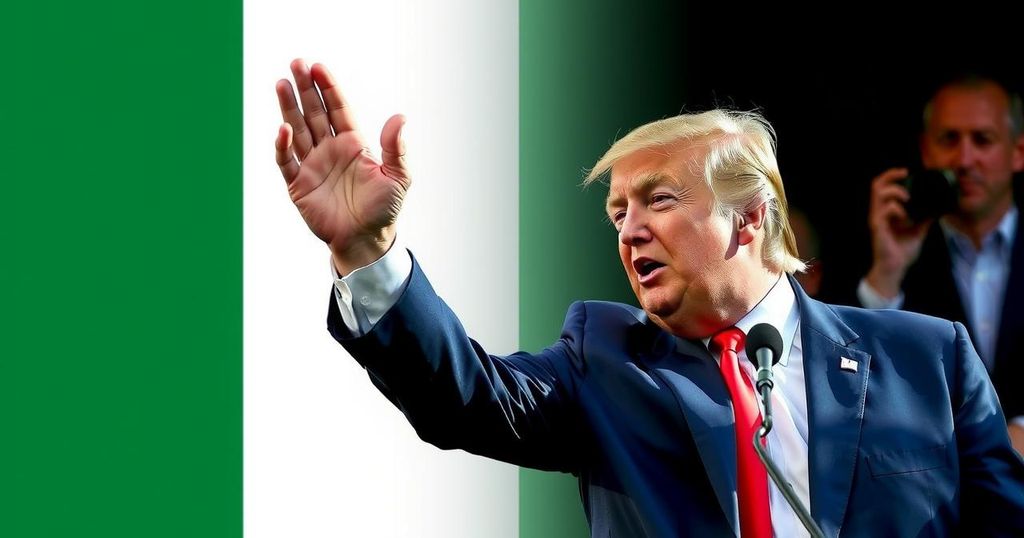Implications of Donald Trump’s Victory for Nigeria and Africa

Donald Trump’s victory signals a shift in U.S. foreign policy that may impact Nigeria significantly. His “America First” approach suggests less foreign aid and support for African nations, emphasizing the need for self-reliance. The implications extend to immigration policies, economic conditions, and human rights issues, particularly concerning the LGBTQ community.
Donald Trump has secured a momentous second term as President, defeating Democratic candidate Kamala Harris. In his victory speech in Florida, he declared that the American people had granted him an “unprecedented and powerful mandate”. His administration promises significant alterations to U.S. foreign policy, emphasizing non-interventionism and trade protectionism under the banner of “America First”. This shift implies that nations like Nigeria may need to independently manage their security and funding in the face of diminished U.S. involvement.
The article discusses the potential ramifications of Donald Trump’s reelection for Nigeria and its leaders. As he emphasizes an “America First” agenda, analysts predict that the U.S. may retreat from its traditional role in international support, requiring countries such as Nigeria to prioritize their own self-reliance. The implications encompass immigration policies, economic interactions, and human rights considerations, particularly regarding LGBTQ issues, which reflect Trump’s previous positions and campaign statements.
In conclusion, Donald Trump’s reelection may have profound effects on Nigeria, particularly through stringent immigration policies, diminished economic collaboration, and a reduced focus on human rights. While the leaders in Nigeria express hope for strengthening ties with the U.S., the overarching theme remains one of caution, as Trump’s administration may not prioritize Africa’s development. It is crucial for Nigerian policymakers to prepare for these potential challenges in the international arena.
Original Source: www.bbc.com







